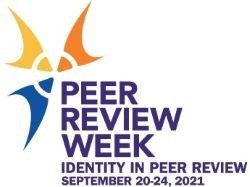Referees
Peer Review Terminology
Communications Biology and Springer Nature are participating in a pilot of NISO/STM's Working Group on Peer Review Terminology.
The National Information Standards Organization (NISO) and STM, the International Association of Scientific, Technology and Medical Publishers have recognized a need to identify and standardize definitions and terminology in peer review practices in order to help align nomenclature as more publishers use open peer review models.
A peer review terminology that is used across publishers will help make the peer review process for articles and journals more transparent, and will enable the community to better assess and compare peer review practices between different journals.
The following summary describes the peer review process for this journal:
- Reviewer interacts with:
- Editor
- Identity transparency:
- Single anonymized or Double anonymized by author choice
- Reviewer information published:
- Review reports author opt in
- Reviewer identities reviewer opt in
- Editor identities
The full terminology is detailed here.
We would welcome feedback on the Peer Review Terminology Pilot. Please can you take the time to complete this short survey.
Peer review at Communications Biology
Communications Biology is committed to rigorous peer review. This would not be possible without the contributions of scientists around the globe who review manuscripts and provide expert advice to our editors and authors on a daily basis. Each month we select a Reviewer of the Month to highlight some of the important people behind the peer review process.
Information for peer reviewers on our policies and general guidance for writing a reviewer report can be found in our Guide to Referees. Further information on our peer review policies for authors is available here. External resources for referees, including free Nature Masterclasses can be found on our Resources for referees page.
Each year starting in 2019, we publish a list of our referees as a way to publicly thank them. Read our past Thank you to Reviewers editorials:
Interested in reviewing for Communications Biology?
If you would like to be considered as a reviewer for Communications Biology, please complete this Google form.
If you are not able to use Google forms, you may send an email to commsbio@nature.com. Include your name in the subject line and the following information in the email:
- Your research interests and types of papers you would like to review
- Your CV and/or link to your research website
- A brief statement about why you would like to be considered as a reviewer
Please note that we will keep your information only for the purposes of contacting you as a potential reviewer for manuscripts submitted to Communications Biology. By requesting to be considered as a reviewer, you are not committing to review any manuscript. If you would like us to delete your information at any time, please contact us.
Peer Review Week 2021
The theme of Peer Review Week this year is Identity in Peer Review. While the goal of peer review is of course to provide objective, factual feedback to authors, each reviewer, editor, and author comes to this task with their own personal perspective and biases, for better or for worse. At Communications Biology, we understand this, which is why we aim to maximize the diversity among our reviewers and editors, to ensure all voices are heard.
For Peer Review Week, reached out to some of our reviewers and external board members to hear their thoughts about the effects of reviewer, author and editor identity on the peer review process. Learn more in the video below and at this blog post.
Peer Review Week 2020
For Peer Review Week we asked some of our best past reviewers to talk about their views on the role of peer review in science, how we can increase trust in research, and how we can build trust in peer review. Read the blog post and watch the video here.

